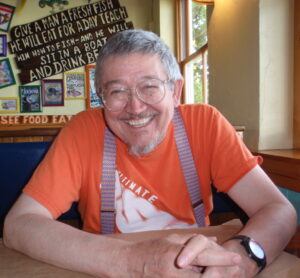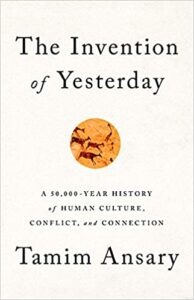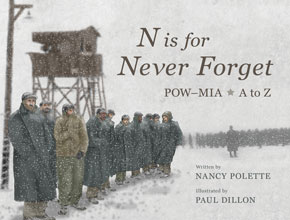In everyone’s life story, author Tamim Ansary says, “There are certain dynamics and forces that are driving the plot.” For Tamim, one of the greatest forces driving the plot of his own life turned out to be an email he wrote in the feverish days following the terrorist attacks of September 11, 2001.
Intending to denounce fundamentalist extremism and to express his concern about the bombing campaign expected to be unleashed soon on his former homeland in Afghanistan, Tamim sent out a cautionary missive to a few close friends. He wrote passionately about the horrors that his country of origin had already endured at the hands of foreign nations. “You cannot bomb Afghanistan back into the Stone Age,” he wrote. “The Russians already did it.” While he supported a United States military response to the attacks, he feared not only the bloodshed a massive bombing campaign would inflict on innocent lives, but also the effect it might inadvertently have in setting the stage for a third world war.

Born to an American mother and an Afghan father, Tamim Ansary’s role as a writer was forever changed after the terrorist attacks of Sept. 11, 2001. Photo by Deborah Kant.
In the coming weeks, his email went viral, filling inboxes across the globe. Reporters seeking interviews tied up his telephone for hours. Suddenly, Tamim found himself in high demand as a someone who could explain an Afghan perspective to a Western audience. His role as a writer was forever changed.
Born to an American mother and an Afghan father, Tamim spent his early years in Afghanistan, feeling not quite Afghan enough to seamlessly fit in with the extended network of cousins and aunts and uncles on his father’s side, but never quite American enough to be automatically accepted by the kids in the American expat community either.
“I was born into understanding that identity isn’t something we have by ourselves,” he says. “Identity is something that we have by virtue of what social field we are in.” In both worlds, he has found himself on the outside looking in—an unsettling perspective for the average person, perhaps, but an ideal vantage point for a writer.
The duality of his identity persisted when Tamim moved to the US to attend high school. At first, he found a true sense of belonging with the counterculture, spending time with other social misfits passionate about a cause greater than themselves. His self-identified “freak” status fit well for a time, but as Tamim grew into adulthood, fell in love, and started a family of his own, he began to feel increasingly disconnected from the dogma of the counterculture. A new sense of self began to take primacy: husband, father, citizen, and teacher.
Tamim went on to work in academic publishing and to teach writer’s workshops. While he maintained his ties to the Afghan community, his day-to-day life was that of a typical American family man. But when Al Qaeda, a militant Islamist terrorist group based in the mountains of Afghanistan, orchestrated the deadliest terrorist attack in history on September 11, 2001, killing close to 3,000 Americans, Tamim was forced to redefine himself yet again.
Two central questions became the focus of his literary career: How do you come to have an entitlement to a culture, and how does that cultural connection shape your identity? Tamim has written extensively, in various forms, to seek and provide answers to these questions: in memoir, as in West of Kabul, East of New York, the story of his own bicultural Afghan and American upbringing; in nonfiction, as in Destiny Disrupted: A History of the World Through Islamic Eyes; and in fiction, as in The Widow’s Husband, a novel portraying the British invasion of Afghanistan from dual perspectives. He was just wrapping up a publicity tour for his most recent book, The Invention of Yesterday: A 50,000 Year History of Human Culture, Conflict, and Connection, a sweeping look at the role narrative plays in shaping world history as we understand it, when the 2020 pandemic sent him, and much of the rest of the world, into lockdown.

Tamim Ansary has settled into retirement, enjoying writing and reading topics of his choosing. Photo by Toivo Kallas.
Freed from many of his obligations to the world at large and facing no looming deadlines, Tamim, age 72, settled into a retirement of sorts: still writing, but no longer training his gaze on matters beyond his own current field of interest. “I kind of like the idea of not being a writer anymore; just writing,” he says. The life of a writer, particularly a nonfiction writer, he explains, is often consumed with what he describes as “leaning into the public conversation.” Aware that he will be asked to comment on current events in his focus area—centered around Afghanistan since 2001—Tamim can never stray far from his usual subject matter. Stepping away from that role has allowed him to explore his interests more broadly, giving him space to let “the hound of interest follow whatever scent it picks.”
Today, that literary hound is following two different scents, novels Tamim says he has been writing for practically his entire life. One, centered around a countercultural newspaper, looks at what happens when a group of people driven by ideology come to the realization that the world they have been working so hard to create does not, and cannot, exist. The second novel features a young Afghan-American man who comes into possession of a poetic masterpiece written by his Afghan ancestors and must decide what to do with it. Tamim says he is not sure either novel will ever make it into the public sphere, but he is glad to have the time and intellectual headspace to pursue these stories, wherever they may lead.
 Reflecting on the past year, Tamim also relishes the extra hours he has been able to devote to reading. Overwhelmed by the sheer volume of good books he has not had time to read yet, he rarely re-reads, always eager to get on to the next book. There are, however, a few exceptions. One of the books that has stayed with him is a science fiction work called The Book of Strange New Things by Michel Faber. It’s about an evangelical minister who travels to another galaxy to bring the Bible to the life forms living there. As the protagonist becomes increasingly obsessed with spreading the word of the Bible to this new world, life on earth falls apart, yet the character is so consumed by his mission that he cares less and less about the people he leaves behind. Tamim says he read the book following the horrific terrorist attacks in Paris (November 2015) and Belgium (March 2016) perpetrated by the Islamic State, at a time when news stories of waves of refugees pouring out of the Muslim world filled the headlines. He was struck by the parallels he saw between this work of fiction, depicting a man so preoccupied with his mission that he fails to protect those who need him most, and the events he saw unfolding in the news each day. He was dismayed by how easy it is to shift our attention away from crises that shatter our collective humanity and toward the more banal, yet comforting, matters of the latest box office smash and what to have for dinner. Tamim says this with no judgement. He knows he, at times, has been just as guilty of averting his gaze as others.
Reflecting on the past year, Tamim also relishes the extra hours he has been able to devote to reading. Overwhelmed by the sheer volume of good books he has not had time to read yet, he rarely re-reads, always eager to get on to the next book. There are, however, a few exceptions. One of the books that has stayed with him is a science fiction work called The Book of Strange New Things by Michel Faber. It’s about an evangelical minister who travels to another galaxy to bring the Bible to the life forms living there. As the protagonist becomes increasingly obsessed with spreading the word of the Bible to this new world, life on earth falls apart, yet the character is so consumed by his mission that he cares less and less about the people he leaves behind. Tamim says he read the book following the horrific terrorist attacks in Paris (November 2015) and Belgium (March 2016) perpetrated by the Islamic State, at a time when news stories of waves of refugees pouring out of the Muslim world filled the headlines. He was struck by the parallels he saw between this work of fiction, depicting a man so preoccupied with his mission that he fails to protect those who need him most, and the events he saw unfolding in the news each day. He was dismayed by how easy it is to shift our attention away from crises that shatter our collective humanity and toward the more banal, yet comforting, matters of the latest box office smash and what to have for dinner. Tamim says this with no judgement. He knows he, at times, has been just as guilty of averting his gaze as others.
His hope is that his perspective can help bridge a bit of the divide between the two cultures he has navigated his whole life. Tamim’s goal, particularly when dealing with matters of Islam, is to speak about but never for the subjects he seeks to illuminate. Striving “to open a window into the reality we all share…to let people look through that window and see how it looks from where you are” is the purpose of everything he writes, novels and nonfiction alike. It is as if he is standing in the doorway of a house, looking in, he explains. He is not a part of the household, but he is close enough to peer inside and report back to those who cannot see what he sees. With every description, he knows, he is revealing as much about who he is, both as a man and as a writer, as what goes on within the house.
Web: MirTamimAnsary.com
Jessica Redmond is the author of A Year of Absence: Six Women’s Stories of Courage, Hope, and Love. She is a freelance writer and the founder and owner of Storyteller LLC, a memoir and ghostwriting service focusing on helping others tell their most meaningful stories.
This article was first published August 2021.











